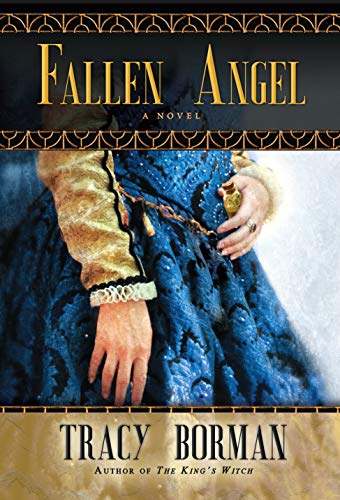Fallen Angel (Frances Gorges Historical Trilogy)
About a year after the closing events of the second book (The Devil’s Slave) in the Frances Gorges trilogy, Borman’s heroine enjoys a brief absence from the malignant court of King James I. She has managed to escape blame for Prince Henry’s death, and she and her beloved husband, Thomas Tyringham, are hoping to live in gracious retirement and raise their growing brood of sons.
However, Thomas is Master of the Hounds to a monarch obsessed with hunting, so back to court they are called, and Frances is once again embroiled in political intrigue and Catholic plots to unseat the “heretic” king. In particular, she falls victim to the malice of the king’s new favorite, George Villiers (later the Duke of Buckingham), as he manipulates the entire court in his quest to marry a rich, innocent young heiress and dominate his lover, the king. Frances’s experience as an herbalist helps her discover that Villiers and his predatory mother favor poisoning any hapless courtier who gets in their way.
There was a real Frances Gorges, but little is known of her life, so Borman is free to place her at opportune moments in history. As in the first two novels, Frances has a gift for accidentally overhearing treasonous conversations, which strains believability at times. Borman is a well-regarded historian, but she often sacrifices political nuance to make Villiers a detestably perverted villain and James little more than a pathetic, lecherous pawn. Frances’s point of view begins to seem increasingly limited, as the events of James’ reign become increasingly complicated; there are only so many repetitions of whispered conversations held in various gardens that a reader can take before longing for a little more action.










